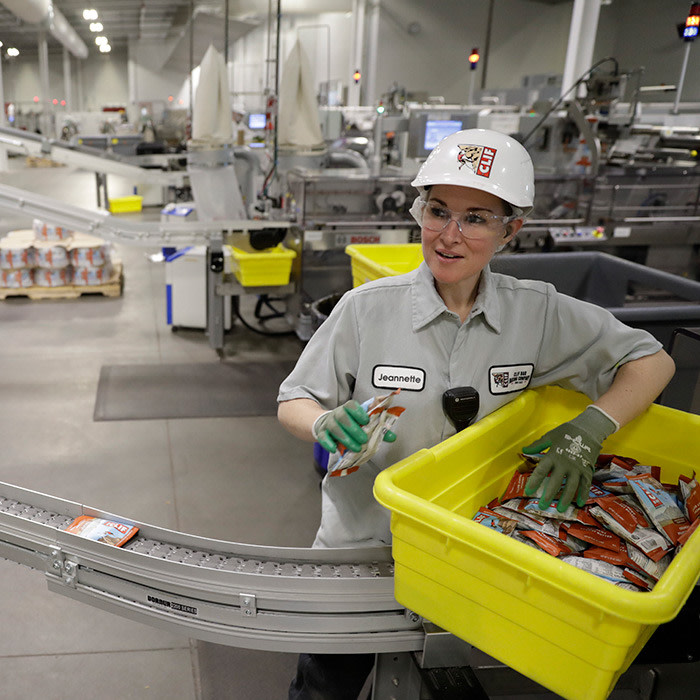In 1990, Gary Erickson, founder of Clif Bar, set off on a one-day, 175-mile bicycle ride with his buddy Jay. As usual, he packed six energy bars for the ride—using the only bar on the market at the time. Halfway through the ride, exhausted and hungry, Gary realized he just couldn’t eat another unappetizing, sticky, hard-to-digest bar. Then and there, in a moment he now calls “the epiphany,” the inspiration for the CLIF® Bar was born.
Gary took his idea to the best baker he knew, his mom, and for the next few months the two experimented with ingredients and recipes—mixing, baking and tossing out bars that weren’t good enough. Finally, Gary settled on the right recipe—a better tasting bar made with nutritious, wholesome ingredients to sustain energy. He named his creation CLIF Bar in honor of his father, Clifford, the man who introduced him to wilderness adventures and encouraged him to follow his passions in life.
CLIF Bar was formally launched in 1992. An instant hit with cyclists and climbers, distribution began at bike shops, outdoor stores and natural food retailers. Soon popularity grew to include outdoor adventurers of all types, and distribution expanded to include grocery stores, convenience stores and other retail outlets nationwide.
The Early Years
In the late 1990s, the energy bar category experienced rapid growth and consolidation. As huge food companies began to acquire Clif Bar’s competitors, husband-and-wife team Gary Erickson and Kit Crawford received offers to sell Clif Bar, too. In 2001, they decided to stay private and develop an innovative business model guided by Five Aspirations—Sustaining our Business, Brands, People, Community and the Planet. With a portfolio of great-tasting food crafted for athletes and active people, we became a category leader among health and lifestyle bars.1 With double-digit, compounded annual growth for the next 10 years, we proved that sustainability was good for business.
Clif Bar’s vision always has been to do business in a better way. Recognizing that food is at the center of everything it does, the company places organic ingredients and organic farming at the forefront of its sustainability efforts. From 2002 to 2013, the company purchased 425 million pounds of organic ingredients.
How Clif Bar works is also critical to its sustainability goals. In 2012, Clif Bar’s headquarters was awarded LEED® Platinum certification, the highest standard buildings can earn as a measure of their sustainability. Through reduction, recycling and composting, the company diverts 85 percent of its office waste from local landfills.
Supporting its employees’ work-life balance, Clif Bar also provided employees with an onsite fitness center and personal trainers. Employees could opt for a flexible workweek and were encouraged to participate in volunteer opportunities during the workday. They also enjoyed sustainability benefits, and onsite childcare. The company was named among the best places to work for multiple years by Outside and Fortune Magazines.
1AC Nielsen food, grocery, drug, mass, convenience, & SPINS Natural, year-to-date through Dec 22, 2013


